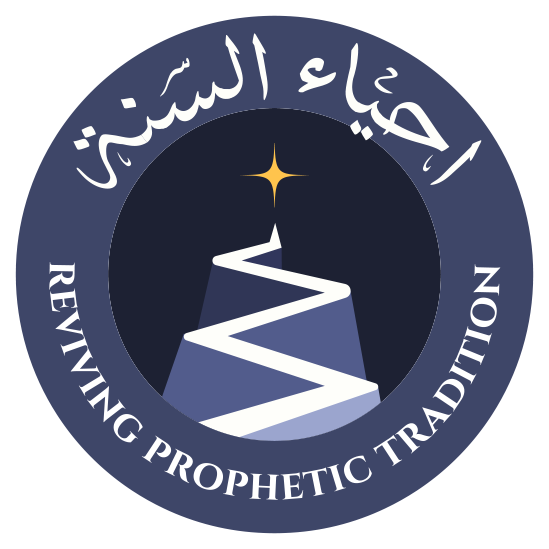Introduction
In this post, we delve into the importance of the miswāk, a natural tooth-cleaning twig, which holds a distinguished position in Islamic tradition. It represents a perfect blend of physical hygiene and spiritual purification. The Prophet Muhammad ﷺ emphasized its significance in numerous narrations, stating, “I have encouraged you greatly to use the miswāk (قَدْ أَكْثَرْتُ عَلَيْكُمْ فِي السِّوَاكِ).” (Ṣaḥīḥ al-Bukhārī). This post highlights the relevance of the miswāk in contemporary life, its benefits, and the significance of reviving this neglected Sunnah.
The Last Action of the Prophet ﷺ
In his final moments, the Prophet Muhammad ﷺ was resting on the chest of ʿĀʾishah رضي الله عنها. Her brother, ʿAbd al-Raḥmān, entered the room carrying a miswāk in his pocket. The Prophet’s ﷺ gaze immediately fell upon it, expressing his desire to use it, though he was too weak to speak. ʿĀʾishah رضي الله عنها softened the miswāk and performed it on him as he could not do so himself. Moments later, the Prophet ﷺ passed away.
This profound event highlights the central role of the miswāk in the life of the Prophet ﷺ, even at the end. He had emphasized its significance during his life, saying:
“If it were not for the difficulty upon my ummah, I would have commanded them to use the miswāk before every prayer.” (Ṣaḥīḥ Muslim).
Daily Practice of the Miswāk
The Prophet ﷺ regularly used the miswāk:
• Before and after wuḍūʾ.
• Upon entering the home.
• Before sleeping.
• Upon waking up.
• After eating.
These consistent actions highlight the prominence of the miswāk in the daily life of the Prophet ﷺ.
Benefits of the Miswāk
The miswāk is recognized for its numerous physical and spiritual benefits, as elaborated by scholars such as Ibn al-Qayyim in his seminal work, Zād al-Maʿād.
Physical Benefits
1. Removes bad breath and clears phlegm.
2. Whitens teeth and strengthens gums.
3. Prevents tooth decay and enhances oral health.
4. Stimulates saliva production, aiding digestion.
5. Improves memory and enhances mental clarity.
6. Strengthens eyesight.
7. Clears and improves one’s voice.
Spiritual Benefits
1. Attracts the closeness of angels.
2. Increases the likelihood of reciting the Shahādah at the time of death.
3. Encourages good deeds and Qurʾān recitation.
4. Enhances the reward of Ṣalāh when performed after using the miswāk.
5. Purifies the mouth and earns the pleasure of Allah, as stated in the ḥadīth:
“The miswāk is a means of purifying the mouth and pleasing Allah.” (Sunan al-Nasāʾī).
Ibn al-Qayyim lists over seventy benefits of the miswāk, emphasizing its holistic impact on both physical and spiritual well-being.
Guidelines for Proper Use
To ensure the maximum benefit from the miswāk, the following guidelines should be observed:
1. Permissibility During Fasting:
The miswāk does not invalidate fasting. In fact, the Prophet ﷺ increased its use during Ramaḍān, reinforcing its permissibility while fasting (Sunan al-Tirmidhī).
2. Proper Size of the Miswāk:
• A miswāk should not be longer than a span, which is the maximum distance between the tips of the thumb and little finger.
• It should not be thicker than the breadth of a finger (Al-Baḥr al-Rāʾiq).
3. How to Hold the Miswāk:
• The miswāk should be held with the small finger and thumb below and the remaining fingers above the stick. This manner of holding reflects the etiquette described in classical texts.
4. Proper Technique:
• The miswāk should be used vertically to protect the gums from harm.
• Chewing or softening the bristles before use enhances its effectiveness.
5. Adherence to the Sunnah:
• While modern alternatives like toothbrushes and fingers may achieve cleanliness, they do not fulfill the Sunnah of miswāk. The specific reward associated with the Sunnah is obtained only by using a traditional miswāk.
Conclusion
Such an easy action, yet it holds numerous benefits for both physical and spiritual well-being. The Prophet ﷺ, when leaving this world, emphasized:
“If you hold onto two things, you will never go astray—the Book of Allah and the Sunnah of His Prophet.”
Let us strive to revive the Sunnah of the miswāk and make it an integral part of our daily lives, thereby drawing closer to the way of the Prophet Muhammad ﷺ and earning the pleasure of Allah.
References
1. Ibn al-Qayyim, Zād al-Maʿād.
2. Ṣaḥīḥ al-Bukhārī.
3. Ṣaḥīḥ Muslim.
4. Sunan al-Nasāʾī.
5. Sunan al-Tirmidhī.
6. Al-Baḥr al-Rāʾiq.






